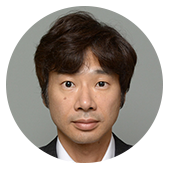In the run-up to the January 23 vote, incumbent mayor Toguchi Taketoyo did his best to steer clear of the topic that has long been the focal point of the island’s elections.
That was a change of tone for Toguchi, who used to be an outspoken supporter of the government's plan to relocate the US Marine Corps Futenma Air Station from the city of Ginowan to the city he represented.
Toguchi was supported by the ruling Liberal Democratic Party and Komeito. But during the campaign, he avoided the topic.
Instead, he talked about boosting the regional economy, expanding childcare and revitalizing the city center.
His opponent, former local assembly member Kishimoto Yohei, took a firm stance against the relocation plan. He had the support of the opposition parties at national level and Okinawa governor.
But voters picked Toguchi, giving him a winning margin of more than 15 points.
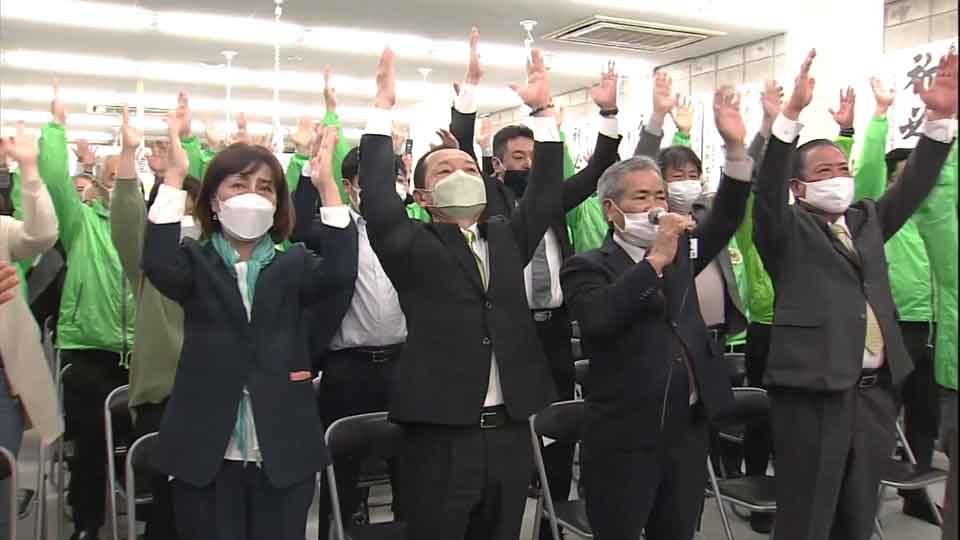
Even after the win, the mayor chose his words carefully, saying, "There is a complicated history to the base relocation … The prefectural and central governments have been at odds over the issue. I will have to wait and see how things develop."
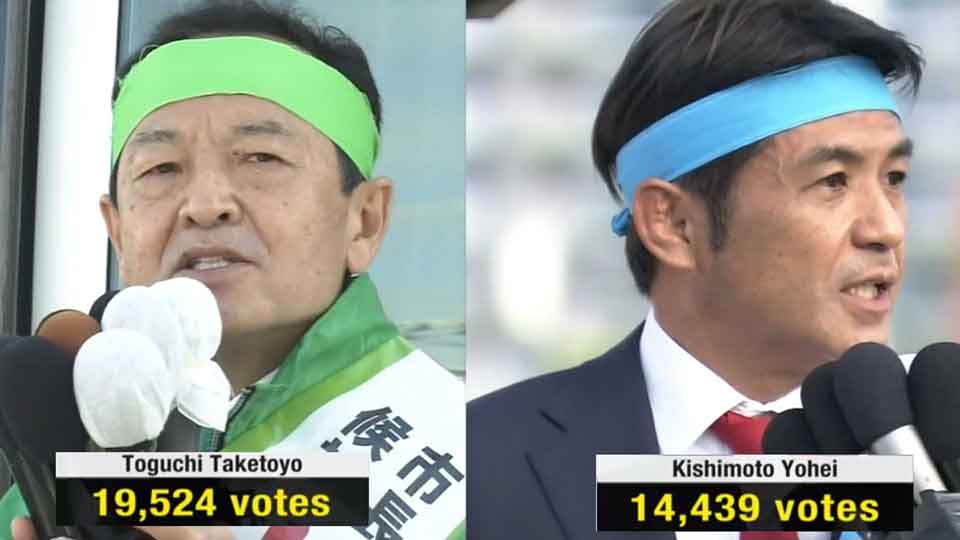
Reactions
LDP Secretary-General Motegi Toshimitsu, who oversees the party’s local election strategy, suggested that Toguchi was free to sidestep the issue because he was supported by the ruling party and buoyed by the Cabinet's high approval rating -- an influence he hopes will come into play again later this year when Okinawa stages a gubernatorial election.
Okinawa governor Tamaki Denny remains unequivocal in his views. "Our opposition to the plan has not wavered, even slightly," the governor told reporters on Monday.
Chief Cabinet Secretary Matsuno Hirokazu wasn’t wavering either. "There is no change in our policy that says steady progress in the construction work for the relocation site will help realize the full return of the US Futenma Air Station."
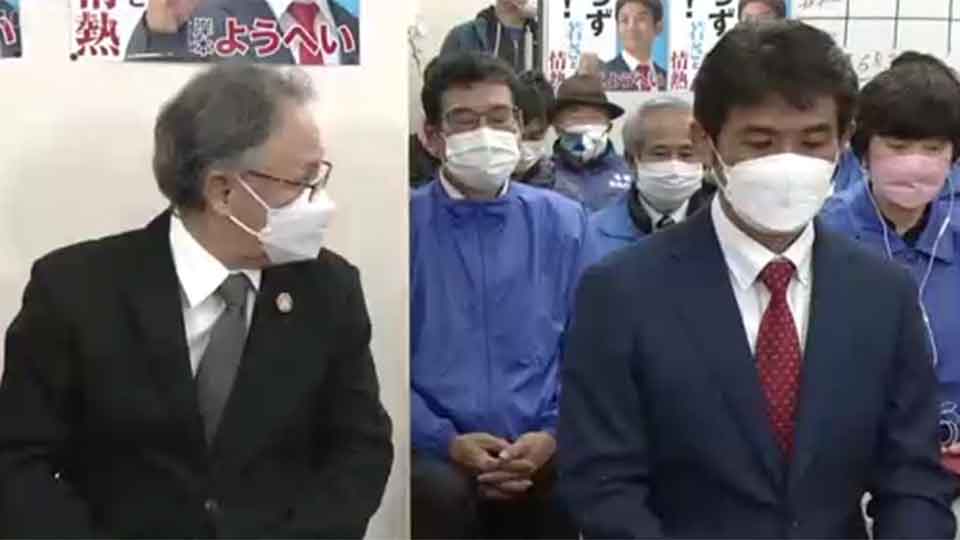
Battle of Okinawa and the US bases
The roots of the plan to relocate the US base go back more than seven decades to the final stages of World War Two. US troops landed on Okinawa came up against a fierce resistance.
The bloody Battle of Okinawa ended in June 1945, and the war concluded soon after. But the US had seen first-hand the strategic importance of the islands and began appropriating land for military bases.
Some of them remain in use today. As of 2020, more than 70 percent of all US military facilities in Japan are located in Okinawa. For years, they have been a source of controversy, with locals complaining of the noise, accidents, and a string of violent crimes.
Public anger against US bases reached its peak in 1995 after three US servicemen raped a 12-year-old girl, triggering protests across the island.

The following year the US and Japanese governments finally agreed to move one of the US facilities, the Futenma air station in densely populated Ginowan, but only to another location in Okinawa.
Workers began reclaiming land for runways off the coast of Nago in 2018. A spate of legal battles followed, with the prefectural and central governments at loggerheads.
Public sentiment on the island has been on the side of the current Okinawa governor, with the prevailing view being that it is unfair for the prefecture to have to host an outsized proportion of the US bases. But in Nago at least, it seems that other concerns are influencing developments.
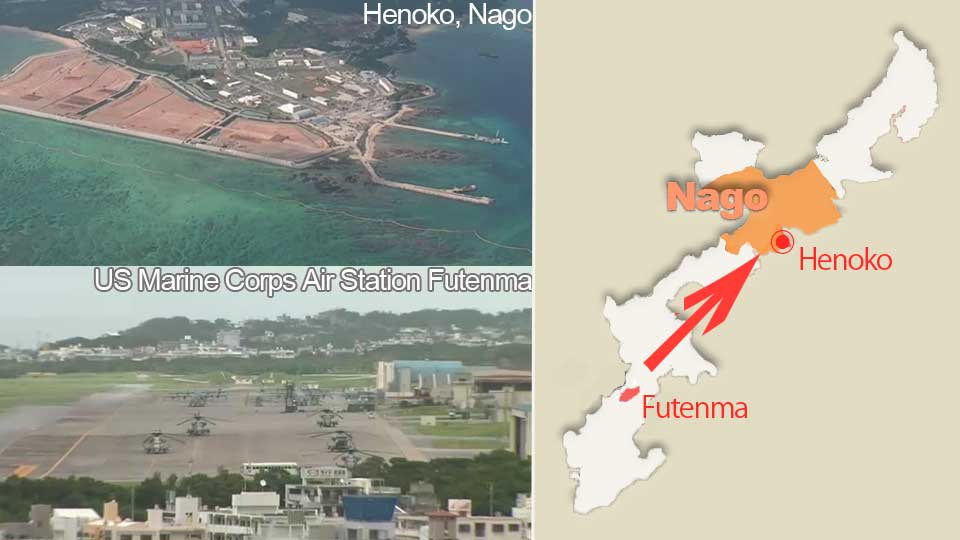
Analysis by NHK senior commentator Masuda Tsuyoshi
In the early days of the campaign, Toguchi’s ties to the ruling coalition seemed to put him at a disadvantage. There was no ambiguity about where the central government stood on the relocation issue.
But his victory suggests the base relocation wasn't the decisive issue this time. It may be a sign that voters are tired of resisting something that they increasingly feel is inevitable.
Former mayor Inamine Susumu was a strong opponent of the relocation and his stance cost the city dearly. It lost the government subsidies earmarked for municipalities that host or are near US bases.
Each time the people of Nago expressed opposition to the relocation, the central government raised the issue of the subsidies. The message was: You can’t afford not to host the base.
The reality is that subsidies are thinly veiled "rewards" for local governments that don’t oppose the central government's policies.
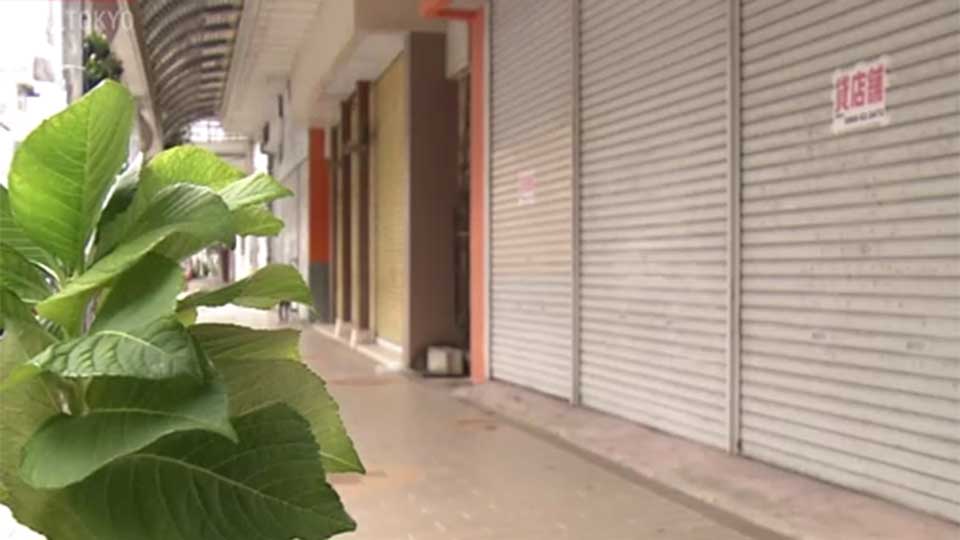
Nago voters have been forced to choose between regional development or opposing the base, and I believe many have simply had enough.
I think they have seen the writing on the wall. They realize the government is committed to barreling ahead with the relocation no matter what.
The thinking now may be: "If we're getting this base anyway, I may as well vote for the guy who says he'll make my life easier."
This feeling was probably made even stronger by the pandemic, which severely damaged the economy not only of Nago but the entire tourism-dependent prefecture.
Now, the government sees the election as a mandate, and I think we will start seeing more substantial moves to speed up the construction process.
Watch video:11:07
Aired on Jan. 24, 2022

